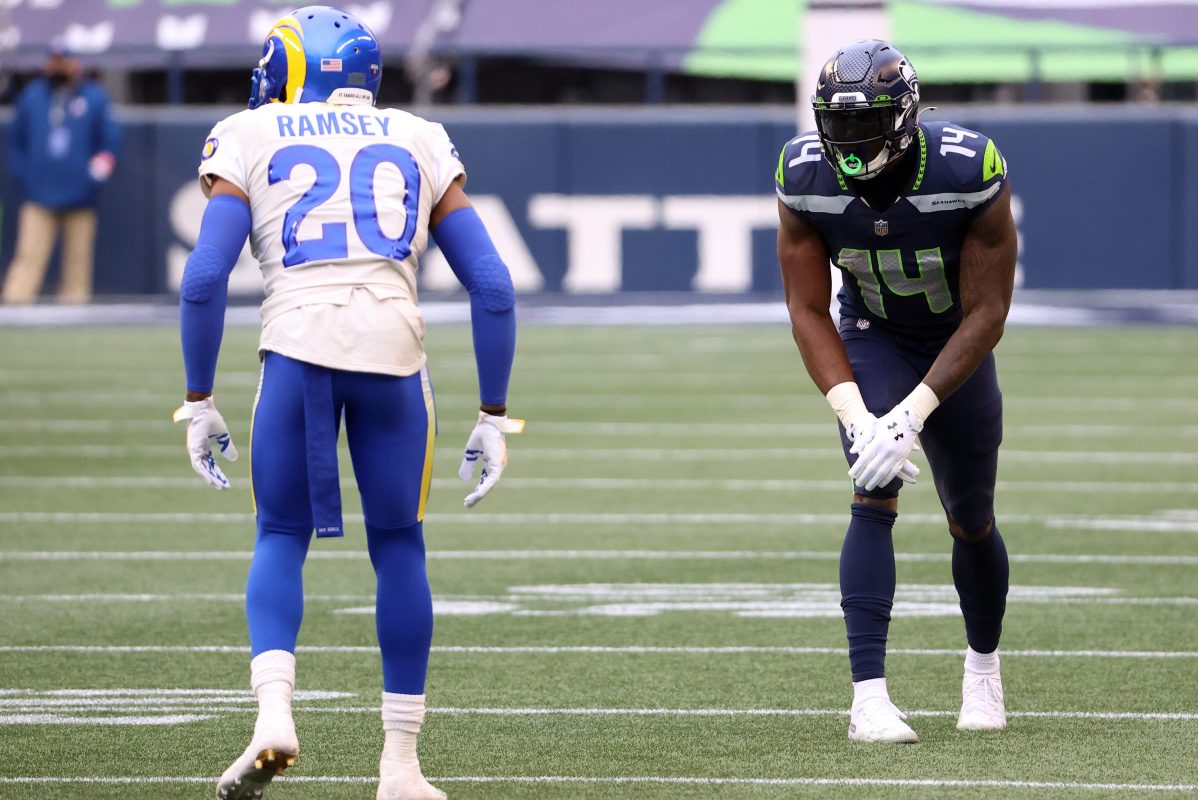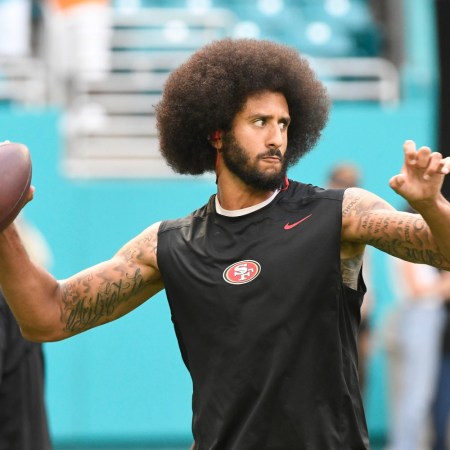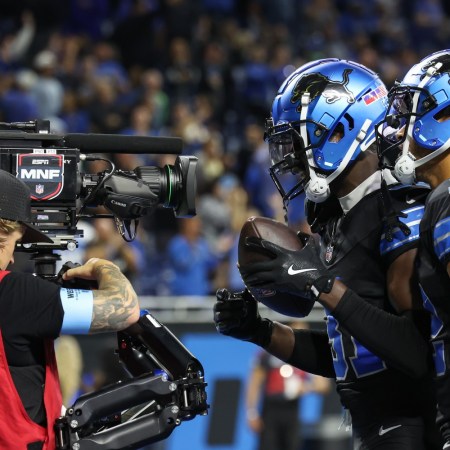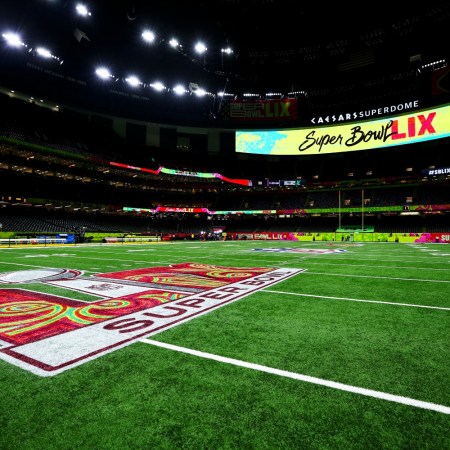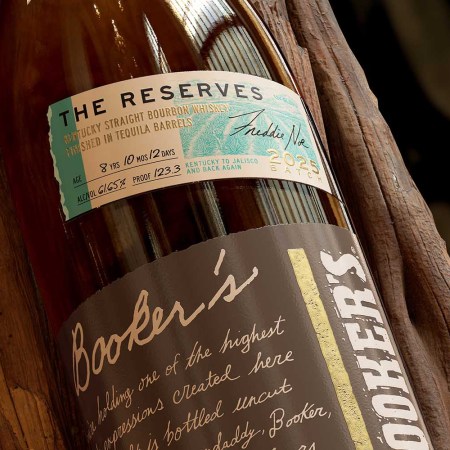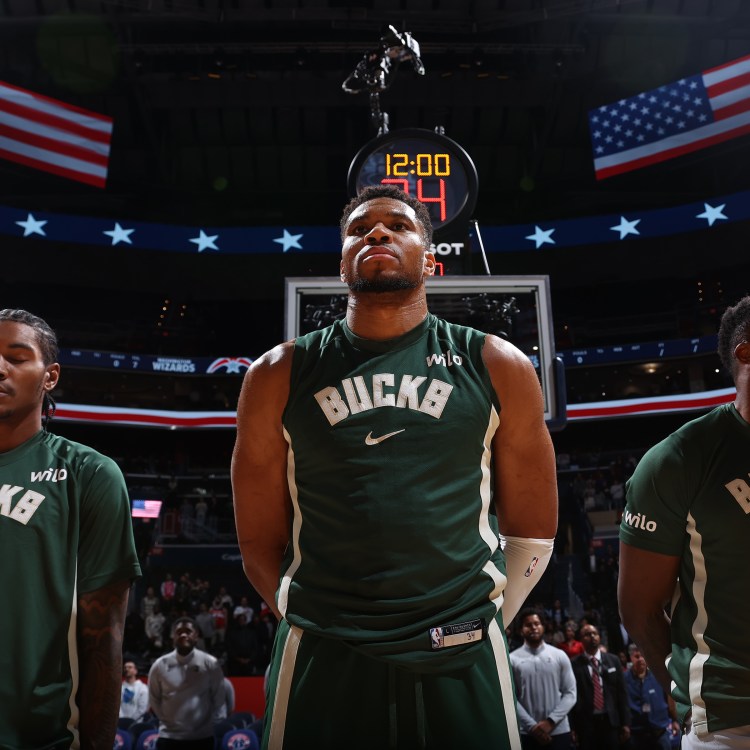At the NFL Combine each year, much attention gets paid to how fast a player can run the 40-yard dash.
But when prospective draft picks run in front of the football world in Indianapolis each winter, they are wearing shorts and sneakers, not helmets and shoulder pads.
That’s why some organizations, like the Patriots, ask their scouts to report a player’s timed speed as well as his “playing speed” in order to get a more accurate read as to how he will perform on the field in game situations, according to The New York Times.
“If you’re chasing a guy, can you catch him?” said New England coach Bill Belichick. “Or if a guy is chasing you, can you outrun him? It’s a little bit more in the heart than the stopwatch. There’s competitive speed, or game speed.”
Some players, like Seattle Seahawks wideout DK Metcalf, have both.
At the 2019 NFL Combine, Metcalf ran a 4.33 40-yard dash, a great time for someone who is 6’4″ and 229 pounds. And that speed has translated onto the field, as was evident when Metcalf was able to chase down Arizona Cardinals safety Budda Baker — who ran a 4.45 second 40-yard-dash during his NFL Combine workouts — after he intercepted Seattle quarterback Russell Wilson. Metcalf, who hit a top speed of 22.64 mph while chasing down Baker, was able to save Seattle seven points with his effort.
To help determine if a player’s timed speed matches up with his playing speed the way Metcalf’s does, teams are starting to examine game and practice data taken from radio-frequency identification chips (RFID) that are placed in every NFL player’s shoulder pads.
Though not every coach or organization has embraced analytics or uses them to make decisions, the data collected from the RFID chips is helping to close the gap between timed speed and competitive speed.
“You can tell a football coach that one of his players moves at 22 miles an hour, but what really matters is how much space did the player create or take away on the field, right? That’s the name of the game,” Steve Gera, a former coach and scout for the San Diego Chargers, said.
The Charge will help you move better, think clearer and stay in the game longer. Subscribe to our wellness newsletter today.
